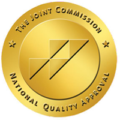There are many reasons men and women begin using illicit drugs or alcohol. Some might surrender from trying to cope with the stressors of everyday life. Others allow peer influence to cloud their judgment. Regardless of why people are prone to addictive behaviors, getting help at a California addiction treatment center could teach individuals how to develop healthy coping mechanisms.
What Makes a Person Prone to Addictive Behaviors?
Not everyone who drinks alcohol or uses drugs will become addicted to these substances. However, certain risk factors increase a man or woman’s propensity toward addiction.
Scientists once believed that a specific gene represented a biological predisposition toward a person’s addiction. Considering children of parents with addictions often became dependent, it made sense to draw that conclusion.
Further research shows this complex disorder can have many origins derived from social, economic, environmental, and biological factors. A web of risk factors extends beyond biology and genes.
Risk Factors for Addictive Behaviors
A man or woman’s vulnerability to addictive behaviors increases with the presence of certain risk factors. While these factors will not automatically result in addiction, they increase the chances.
Some common risk factors may include:
- History of aggressive behavior during childhood
- Poor parental supervision
- Easy access to alcohol or drugs
- Poor social skills
- Lower socioeconomic status
A person’s addiction is often a response to a psychiatric or psychological disorder such as depression or anxiety. This dramatically increases the risk of developing an addiction since they may try to self-medicate the underlying disorder. A traumatic event such as an abusive background is another risk factor.
Treating Addictive Behaviors
Approaches to treating addictions will vary based on specific cases. However, several addiction therapy treatments might become part of an individualized treatment plan.
Cognitive behavioral therapy is one common form of treatment. Also known as CBT, this treatment can help men and women identify thoughts and behaviors that drive them to use. Negative, destructive thinking is common for people struggling with substance use disorder.
Without treatment, it’s challenging to recognize these thought patterns. Cognition affects a person’s well-being. Therefore, a change in these thought patterns is essential to recovery. CBT uncovers what is wrong, and people can practice alternative thinking patterns. This can aid in regulating harmful behaviors and emotions.
Many users also have a mental illness, which holds psychological underpinnings to their addiction. Treating the addiction without addressing a mental condition or deep emotional trauma is futile. A person may soon return to the addiction when triggers bring the underlying use to the forefront.
Dual Diagnosis Addiction Treatment
Addressing these co-occurring disorders brings understanding and awareness. A person can understand their behavior and start to make better choices.
Psychotherapy is another way to treat addictions. As part of a comprehensive treatment plan, it can take many forms, such as support groups and residential inpatient care.
Addiction treatment is a complex process that requires an individualized approach. At Avedis Recovery, we understand this and strive to create a tailored plan for each client. We focus on short-term and long-term goals, providing them with the tools and resources needed to find success in their recovery. Our team of experienced professionals uses evidence-based methods to develop a structure allowing our clients to focus on their needs and journey. Our approach incorporates therapeutic interventions, lifestyle development, and regular re-evaluation to ensure success. We understand that family and community involvement are critical components of successful recovery, so we strive to support these relationships as we work to help our clients find healing. Call us at 833.329.0462 today! You can verify your insurance directly on our website.








